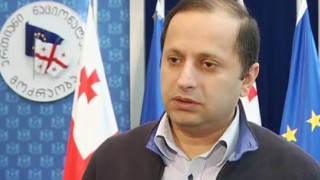Criticising the new government’s economic policy at the plenary session of 18 September 2013, the MP from the United National Movement Zurab Melikishvili discussed suspended projects and stated: “Reasons explaining the shortfall in the budget can be numerous. I will focus solely on one major cause, however, which concerns suspended projects. We discontinue all those projects which bear strategic importance for our country such as the Tbilisi Railway Bypass project which has been suspended and brought to a standstill while a massive portion of the actual construction work, roughly 80%, had already been concluded.”
FactCheck attempted to uncover the reasons which had prompted the suspension ofthe Tbilisi Railway Bypass project and tried to establish whether or not the aforementioned 80% of construction work had indeed been completed.
Prior to discussing the Bypass project in particular, it is to be noted that the MP’s statement concerning the suspension of various infrastructural projects is indeed consistent with the truth. This fact has been admitted by the government itself and the revision of different tenders due to certain shortcomingshas been specified as the reason for the suspensions. The Minister of Economy, Giorgi Kvirikashvili, explains the failed budget execution in 2013, among others, with the following factor: “As the GDP growth rates were lower than expected, the execution of some budgetary incomes failed. The infrastructural portfolio went through a profound revision as well.”
Nodar Khaduri also commented on the reduction of state-financed construction projects: “The only sector which was marked with a downturn this year was construction. The decline was observed, however, solely in the construction performed with the participation of the state.”
The Tbilisi Railway Bypass project is being implemented byJSCGeorgian Railway. The project and construction work are implemented by the joint enterprise of China Railway 23rdBureau Group Co.LTD and Khidmsheni JSC based on the contract #GR-003 formed on 14 June 2010.
In the month of September the President of Georgia and the Mayor of Tbilisi visited the construction site of the Tbilisi Railway Bypass project. They noted that the work on the railway had been suspended and found the fact of suspension to be utterly unacceptable, declaring that the project was of major importance to the country and, as such, should not have been arrested. In interviews to different media outlets, Mikheil Saakashvili confirmed that 80% of the project work had been completed and denounced the fact of the project’s discontinuation.
The Ministry of Economy of Georgia and JSC Georgian Railway both responded to the statements of the President and the Mayor stating that the project had numerous shortcomings and was suspended with the purpose of studying the failings and improving the project.
Aiming to explore the details of the issue, FactCheck addressed JSC Georgian Railway and Tbilisi City Hall with an official letter (the letter to Tbilisi City Hall was addressed to the Mayor Gigi Ugulava). We asked the two bodies to provide information on the qualities of the Tbilisi Railway Bypass project. The letters sent to both bodies were identical and included the following questions:
- Dates of completion envisaged in the Tbilisi Railway Bypass project
- Estimated gross value of the construction foreseen in the project
- Amount of expenditure to the present moment
- Amount of work completed to date
- Actual stage of the project (suspended/at a standstill/not to be continued, etc.)
- Sum of money required for the completion of the project
- Breaches uncovered in the course of the project (if present)
- Railway capacity has been reduced by 24%
- Total expenses related to the operational procedures as well as the maintenance are growing by 57%
- The total cost over the next 11 years will increase from USD 26 million to USD 197 million
- The total length of railway track will reach 48 km with internal tracks (Didube Station, Tbilisi Railway Junction Station) also being added for a total of 22 km
- The daily movement of cargo trains increases by 50%
- The new project also requires an expansion of the locomotive fleet by 26%
- Annual operational and maintenance costs for the Tbilisi Railway Bypass will jump toUSD 12.2 million (+51% in comparison with the existing costs)
- Operational costs of the railway will increase by 35%
- Operational costs of infrastructure will increase by 31%
- Expenses on maintenance of infrastructure will increase by 73%








